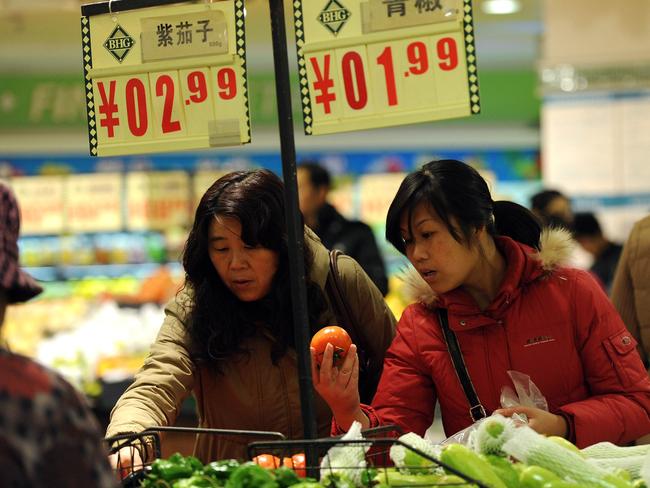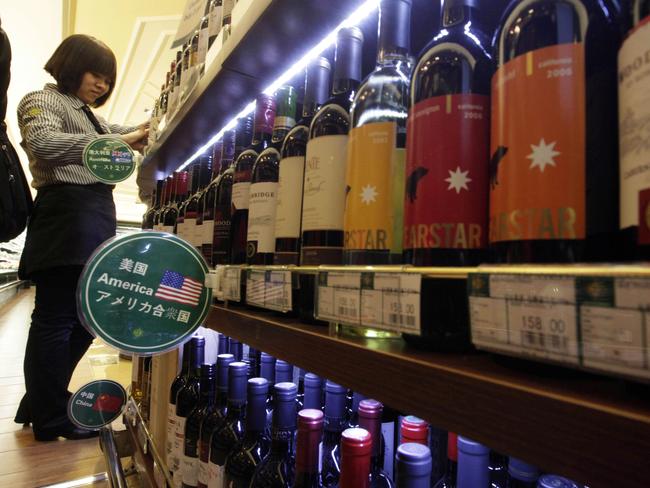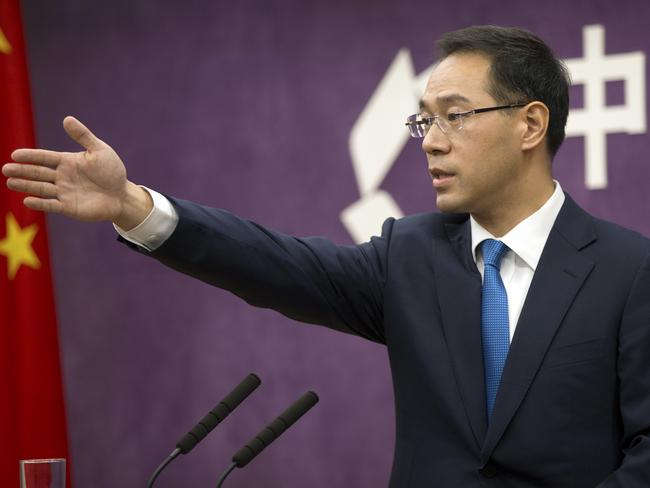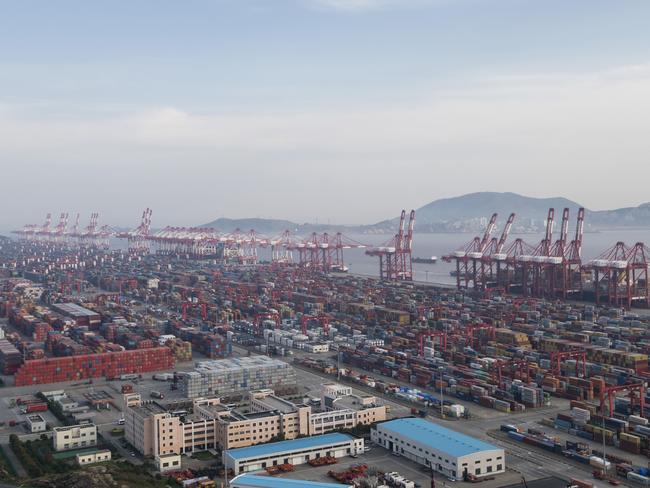Australia could be a winner in China-US trade battle
AS trade tensions between the two powers escalate, tit-for-tat tariffs on products including wine, fruit, nuts and scrap metal could benefit Australia.
THE United States and China are duelling it out over trade as the world’s two biggest economies slap spiralling retaliatory tariffs on each other’s goods.
And many suspect Australia could benefit from the move, stepping in to provide affordable products including wine, fruit and nuts.
China on Monday announced up to 25 per cent tariffs 128 American agriculture products in response to Donald Trump’s tariffs on the nation’s steel and aluminium imports to the US, which he blamed on the Beijing’s subsidies and overcapacity.
The White House then announced a retaliatory 25 per cent tariff on 1300 Chinese products including flat-screen televisions, medical devices, aircraft parts and batteries.
Mr Trump will impose tariffs on more than $70 billion of cutting-edge Chinese goods after an investigation into Beijing’s alleged intellectual property misappropriation.
China denies claims it steals or pressures foreign companies to hand over technology, and said the tariffs on US goods it unveiled on Sunday were in response to the duties on aluminium and steel imports, but not the investigation.


‘WE WILL FIGHT ’TIL THE END’
“We don’t want a trade war, but we are not afraid of it,” said China’s foreign ministry spokesman Geng Shuang. “If someone insists on starting a trade war, we will fight ’til the end.”
Mr Geng stressed that China remains open to negotiation and hopes to handle the dispute with the US through discussion, but if any party insists on starting a trade war, it is ready to defend its interests.
“We hope the dialogue and consultation will be in accordance with international law and trade rules and based on mutual respect and equality,” he said, adding that the US should stay rational, listen to calls from business communities, discard unilateralism and protectionism and work with China for the development of bilateral trade.
US media are already raising concerns over Australia’s possible gains. As US wine imports to mainland China declined last year, Australia’s rose 63 per cent to $848 million, propelling Australia to a record-breaking 2017, CNBC noted.
Not only is the Asian power our largest wine export market, Australia is the biggest competitor to the US in terms of fruit exports to China. Almost 40 per cent of Australia’s fruit exports last year went to greater China, while Chile’s fruit producers could also benefit from the dispute.
California Citrus Mutual president Joel Nelsen told radio station KVPR: “The market share that we’ve been trying to develop over the past several years becomes expendable and there’s an opportunity for others to steal it.”
Exports of Australian tree nuts to China grew from $6 million in 2010-11 to $63 million in 2015-16, according to the Australian Bureau of Agricultural and Resource Economics and Sciences. Tree nuts are our largest and most valuable horticultural export, accounting for 45 per cent of horticultural goods sold overseas and tipped to reach $1 billion, the ABC reported last year.
CMC Markets’ chief market strategist Michael McCarthy said Australia and New Zealand had “a reputation for pure foods” and this could be an opportunity to “insert those products into other markets”.
Beijing also imposed new tariffs on American pork, which could benefit exporters in the European Union, Brazil and Canada.


‘NO ONE WINS OUT OF A TRADE WAR’
It’s not just Australia’s agriculture sector that stands to gain. Another US export slugged with a 25 per cent tariff by China is scrap aluminium, which is melted and reformed in Chinese furnaces, NPR reports.
Australia has seen its exports of such waste materials rise sharply since the 1990s. In 2011-12, China was our biggest trading partner for exported waste products, receiving $602 million-worth or 31 per cent of our waste metal exports, according to the ABS.
The Asian state is also a massive importer of metallurgical — or met — coal, which is used in blast furnaces to produce steel.
With the US imposing a 25 per cent tariff on steel imports from China, the Asian state may decide to source more of its met coal from elsewhere. As one of the world’s top exporters of coal, Australia could reap the rewards.
But Malcolm Turnbull yesterday insisted there were no winners if the US and China cannot reach an agreement. “No one wins out of a trade war, that’s for sure,” the Prime Minister told reporters in Brisbane.
“It is really important that we maintain free trade, open markets — that has been the foundation of the prosperity we have all enjoyed, especially in this region,” said Mr Turnbull.
Chris Richardson from Deloitte told Sky last week that a full-blown trade war “won’t be pretty” for Australia, despite the predictions of US media.
Mr Richardson warned that it would be “nasty” but “not the end of the world”, forecasting a hit to China’s economy could take between one and two months’ ordinary growth out of the Australian economy.
“The key for us is we sell a lot to China, what does China do?” he said, adding that mining, construction and retail could be at risk because they are reliant on Chinese growth for strong export prices.


TRICKY BALANCING ACT
Ultimately, Australia is caught between its biggest trade partner and biggest investor — the economy we rely on and nation we look to for our security.
This could be a tricky balancing act, especially after China’s state media recently took a direct stand against Australia, accusing us of being an “anti-China pioneer” over its position on the South China Sea.
Kevin Rudd has also attacked Mr Turnbull’s approach to the Asian state, accusing the Government of “blowing hard and soft” at a time when “we just don’t know what the future rules will be”.
Mr Trump’s America First policy is opening new doors for China as Australia and Asian nations turn away from the US. Australia is caught in the middle of these complicated relationships.
China has become Australia’s biggest and most important trade partner as the world’s second-largest economy continues to grow at breakneck speed.
Canberra has been working hard to strengthen Australia’s ties with Asia without alienating a close ally in the US in these unpredictable days of the Trump administration.
Australia remained part of the trans-Pacific Partnership trade deal after the US pulled out and has established a China-Australia Free Trade Agreement.
These are troubling times for the world, with stocks falling for a second day on Tuesday amid jitters about US-Chinese tensions and mounting scrutiny of technology companies.
Investors are concerned it increases the risk of a broader conflict that might depress global trade.
Whatever happens, Australia could play a crucial role, and needs to get this right.
— With wires



